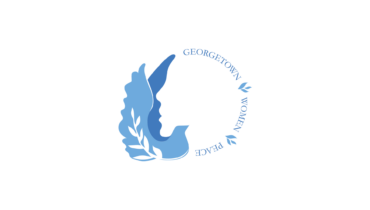The Guardian reported last week that only 0.5% of aid money allocated to promote gender equality ended up going to women’s rights organizations in developing countries. Citing a forthcoming review from Gendernet, Liz Ford explains that though almost a third of the funds allocated to gender equality programming in 2014 was directed to civil society, most remained with NGOs in donor countries. Less than 10% was given to organizations in developing countries, and of that only a small part went to local women’s groups.
Local women’s civil society organizations receive only a fraction of a fraction of an already small pot of funding allocated to gender equality goals, in spite of research that shows they are essential players in peace and security efforts. The GIWPS report Women Leading Peace identifies women’s civil society networks as a key factor in helping women gain access to peace negotiations in diverse regional contexts. Htun and Weldon found feminist mobilization in civil society is the biggest driver of policy change on violence against women. Increasingly, local women’s groups are touted as potential changemakers in countering violent extremism and radicalization.
Yet despite proven results, available funding for these groups is shrinking. The 0.5% figure cited by The Guardian is down from 1.2% three years earlier. One culprit is an increasingly risk-averse funding environment driven by stricter counterterrorism regulations. Like those of other donor countries, the United States’ anti-terrorism financing regulations include a number of measures aimed at restricting the amount of aid that reaches the hands of extremist organizations. However, the additional requirements needed to receive US assistance place the burden on funding recipients to pass stricter vetting, and have a disproportionate impact on women’s organizations and those working for gender equality.
Tightening finance regulations has had an adverse impact on civil society and aid organizations across the board. Higher vetting thresholds, greater demands for transparency and reporting, and more risk-averse banks put pressure on small groups’ operational capacity. But a 2009 report by the UN noted that restrictions implemented by anti-terrorism financing rules “have particularly impacted organizations that promote gender equality,” because “as divergent voices within their communities, it is precisely this foreign funding on which women’s rights organizations might be particularly dependent.”
Indeed, surveys of women civil society leaders by Women Peacemakers Program and Women’s Alliance for Security Leadership both found that women identified shrinking funding opportunities as one of the most harmful byproducts of counterterrorism measures. Lama Fakih examines how a suite of anti-terrorism finance regulations impacted women’s rights in Somalia, and finds they create major barriers not only by raising the bar for receiving American aid, but also through cutting foreign remittances, chilling foundation and IGO funding to women’s groups, and reducing direct humanitarian assistance for women’s rights [1]. Many groups have reported that increasingly risk-averse behavior of banks led to delays and even the closing of their accounts in some cases. Stricter accounting and evaluation criteria make core and operational funding less attractive, limiting grants to project-specific investment, rarely in line with longer-term needs of promoting gender equality.
New research by Aneela Salman based on data from the World Values Survey and Global Terrorism Database suggests that actual outcomes of gender equality, like greater numbers of women in parliament, have a significant negative impact on instances of terrorism [2]. This research supports statements by many policymakers that women are a key resource against rising extremism, or as UN Women Director Phumzile Mlambo-Ngucka put it, “the best weapon in the war against terrorism.” And yet the organizations that work most effectively to promote equality and empowerment are those hit hardest by funding regulations. Barely 6% of aid to fragile states targets gender equality as a principal objective, and in security-specific aid the figure is less than 2%. As new OECD data proves, funding that reaches local women’s groups is a far smaller percentage still. As funders becomes increasingly cautious, instituting tighter anti-terrorism finance regulations and shifting significant portions of development aid to security-focused CVE work, local women’s organizations have paid the price.
It is possible to both mitigate the serious consequences of inadequate vetting while also supporting the women’s organizations on the ground, but it may require some creativity on the part of funders. In recognizing the additional barriers women’s organizations face in passing strict vetting requirements, implementing partners and funding countries should make extra effort to identify and support local groups working towards gender equality. Working with trusted intermediaries can help identify reliable local partners, and broader women’s funds like Global Fund for Women can aggregate and distribute funding, taking the administrative burden off smaller groups. Funding organizations should also recognize the need for investment in longer-term organizational development rather than short, time-bound grants requiring extensive evaluation. Local women’s civil society organizations are hailed as a key player in building community resilience and combatting drivers to extremism, but their success is only possible with adequate financial support.
1. Fakih, Lama. “Soft measures, real harm: Somalia and the US ‘War on Terror’.” in ed. Huckerby, Jayne and Satterthwaite, Margaret. Gender, National Security, and Countr-Terrorism: Human Rights Perspectives. New York: Routeledge. 2013. p. 190
2. Salman, Aneela. 2015. “Green Houses for Terrorism: Measuring the Impact of Gender Equality Attitudes and Outcomes as Deterrents of Terrorism.” International Journal of Comparative and Applied Criminal Justice 39 (March): 281-306
About the Author
Rebecca Turkington is a Program Manager at the Georgetown Institute for Women, Peace and Security. She holds a BA in International Relations/History from Wellesley College, and is currently pursing a MA in Security Studies at Georgetown University, concentrating in terrorism and substate violence. Prior to joining the Institute in 2013, she worked on women’s political participation at the National Democratic Institute, the Women in Public Service Project and Moroccan Ministry of Interior.

